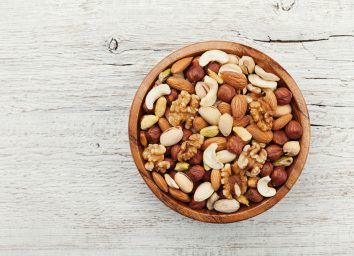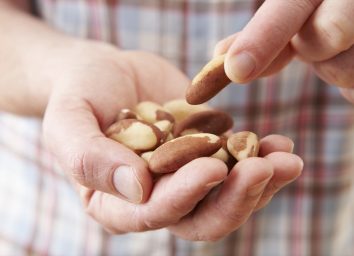6 Best Nuts To Reduce Inflammation, Says Science

What you eat can have a direct effect on your everyday health—especially when it comes to inflammation. It's important to keep inflammation levels low in order to prevent the development of chronic diseases such as cardiovascular disease, diabetes, dementia, autoimmune disease, and more. Even the smallest change to your diet can have a major impact on your health—such as sprinkling some nuts on top of your meal. In particular, these six nuts are known to be the best for reducing inflammation because of their anti-inflammatory biomarkers.
Here are the best nuts to reduce inflammation to stock up on next time you're on a grocery run, and for even more helpful tips, grab these 6 Best Foods To Reduce Inflammation as You Age as well.
Walnuts
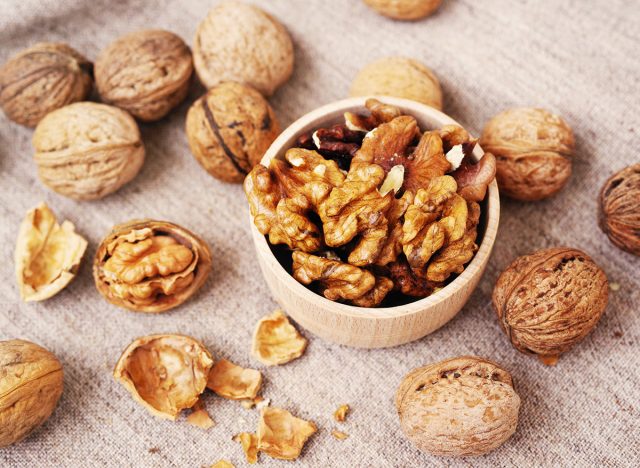
Out of every nut to choose from, walnuts are one of the best for reducing inflammation due to their high concentration of alpha-linolenic acid (ALA)—a type of omega-3 fatty acid that is known for having potent anti-inflammatory effects. A study published in the Journal of the American College of Cardiology concluded that eating walnuts daily can reduce the concentration of several inflammatory biomarkers, and is recommended for decreasing cardiovascular disease risk.
Almonds
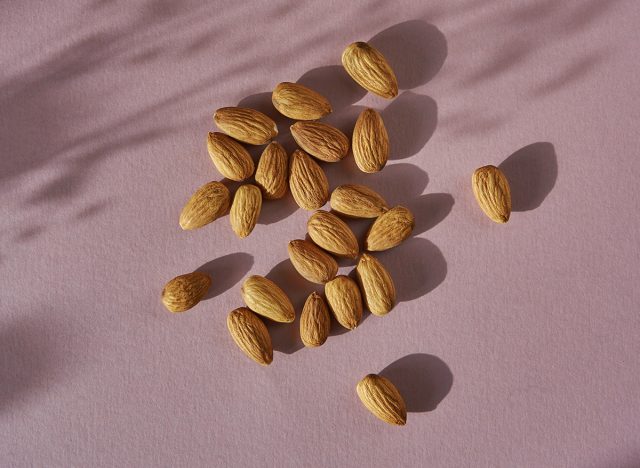
Compared to other nuts, almonds have a higher amount of fiber with three grams per ounce. Consuming enough fiber during the day not only assists with weight management and lowers cholesterol, but it can also help with reducing inflammation.
Almonds are also popularly known for being a rich source of vitamin E, and according to the Arthritis Foundation, research shows that an almond-rich diet can help with lowering markers of inflammation.
Peanuts
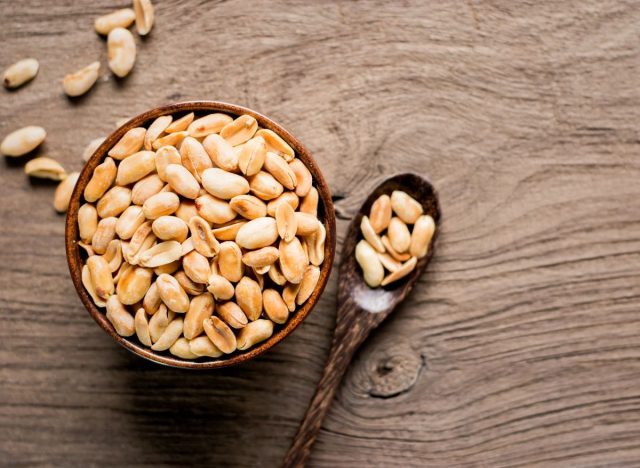
One study from the American Journal of Clinical Nutrition concluded that a greater intake of nuts can help inflammation—peanuts included. Consumption of nuts was linked to lower a C-reactive protein, which is made in your liver and sent to your bloodstream and increases when your body is inflamed. Peanuts were specifically associated with lower tumor necrosis factor receptor 2—promoting the inflammatory activity of cells.
Peanuts are also high in Arginine, a type of amino acid that assists with building muscle. According to biomedical engineers at Duke University, building muscle can assist with the damaging effects of chronic inflammation long term.
Pecans
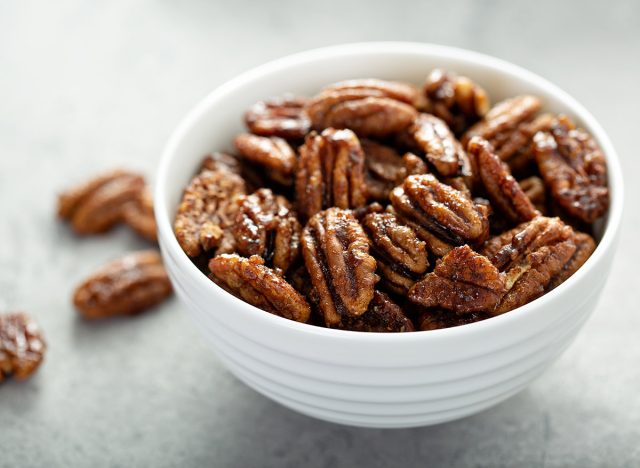
Along with being rich in omega-3 fatty acids, which is a key to decreasing inflammation in the body, pecans can reduce inflammation by reducing the forming of inflammatory mediator molecules. Trends in Food Science and Technology states that pecans can help counteract any pro-inflammatory activity happening from overconsuming saturated fatty acids.
Hazelnuts
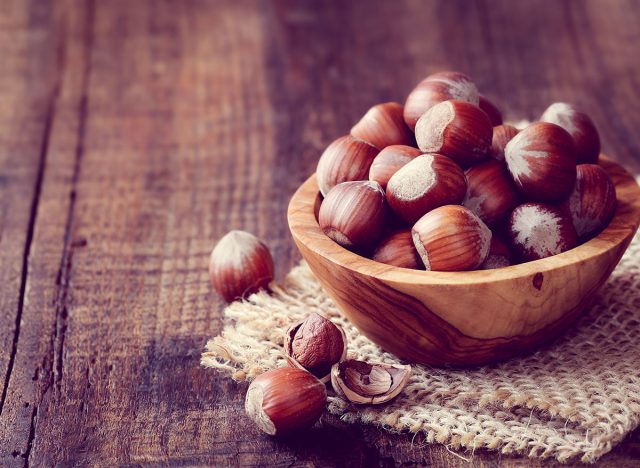
Hazelnuts are considered to be the second richest source of monounsaturated fatty acids and are known to be an excellent anti-inflammatory food. Oxidative Medicine and Cellular Longevity states hazelnuts are also a hypolipidemic food, meaning it is lower in saturated fat and is a good heart-healthy choice due to their ability to lower LDL cholesterol levels—commonly linked to increased inflammation and chronic disease risk.
Pistachios
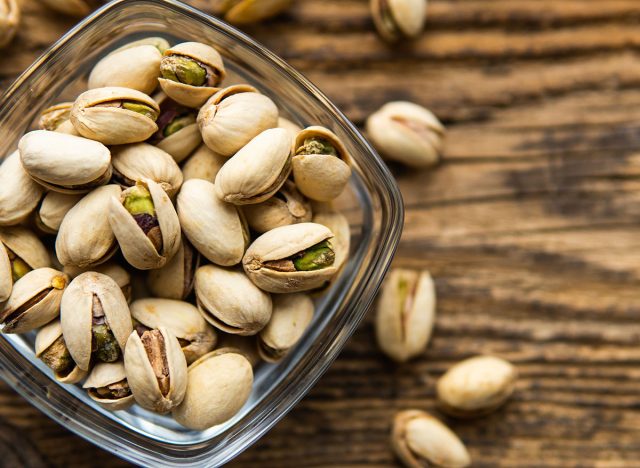
Pistachios are rich in multiple antioxidants and are known for reducing oxidative stress that leads to increased LDL cholesterol, according to the Journal of Nutrition. Oxidative stress causes an imbalance of reactive oxygen species, which can lead to chronic inflammation. Diets rich in polyphenols—like the kind found in pistachios—is key for reducing oxidative stress and inflammatory activity.

